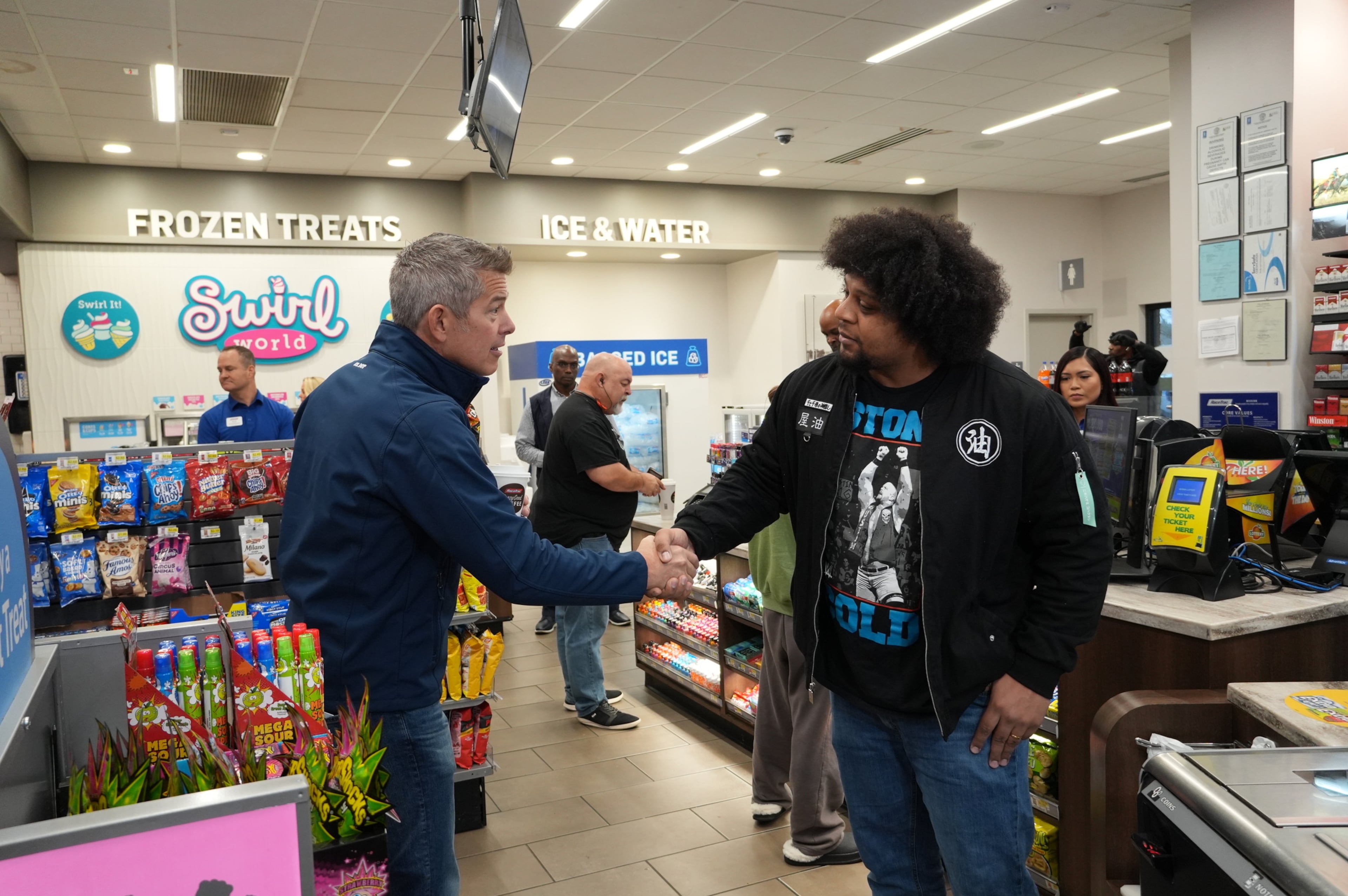Opinion: You don’t have to fear me

My heart is heavy thinking of all of the black men and women hurt or killed in racially charged incidents with police.
My heart is heavy thinking about all the peaceful protests against this injustice, when powerful messages are drowned out by a few who turn to violence.
My heart is heavy thinking about all the parents who have to help their children understand the violence and injustice of this world.
As a teenager, I witnessed police brutality firsthand serving time in jail in upstate New York. In jail, there are no smartphone cameras — anything can happen to you and nobody will know. I was able to survive that experience and move past the serious mistakes I made thanks to the positive influences in my life.
One of my most influential mentors growing up was my track coach, Mr. Maynord. A white man with a heart of gold. He played a key role in helping me get my life back on track – taking the SAT in jail, graduating from high school and going to college.
Because of these experiences, and the young men I met in jail, I’ve devoted my career to youth development. In 2018, I became the CEO of Big Brothers Big Sisters of Metro Atlanta.
This year I was honored to be included in the 2020 Leadership Atlanta class. The most impactful part of this year-long program was “Race Day” lead by Al Vivian. We spent two days taking a deep dive into systematic racism. One of my biggest takeaways from that program was that, as a black man, white people may fear me for no reason.
And yet here I am leading an organization that depends on the volunteerism and goodwill of people of all races to defend the potential of young people in Atlanta. Most of the children we serve (97%) are people of color and about half of our volunteers are white. So in many cases we are matching middle-class white men with black boys in low-income communities. And some of those mentoring relationships are the most long-lasting in our program.
This is where I see a solution. I believe relationships are powerful. Mentorship can bring two people from very different backgrounds together, and the beauty is that both benefit from the relationship. Both learn from the relationship. Both become more accepting of others who are different. Both become better because of the relationship. Because Mr. Maynord knew me as a person, understood that I was not just another young black man in trouble with the law, he was willing to reach out and help me. He was not afraid.
Living through the last few weeks, it has become clear to me that we need to become more intentional about this aspect of our work. We want to have the hard discussions, to provide more in-depth training and support to our volunteers and families, to help them overcome the divisions that exist between people. We want to be a place of healing and hope in the community.
You don’t have to fear me. In fact, I hope you will join me by actively engaging with someone who is different than you. Listen to that person and respect their experiences. Don’t be afraid of asking the hard questions. Together, we can make a better Atlanta for all of our children and hopefully become an example for the country.
Kwame Johnson is the president and CEO of Big Brothers Big Sisters Metro Atlanta.

